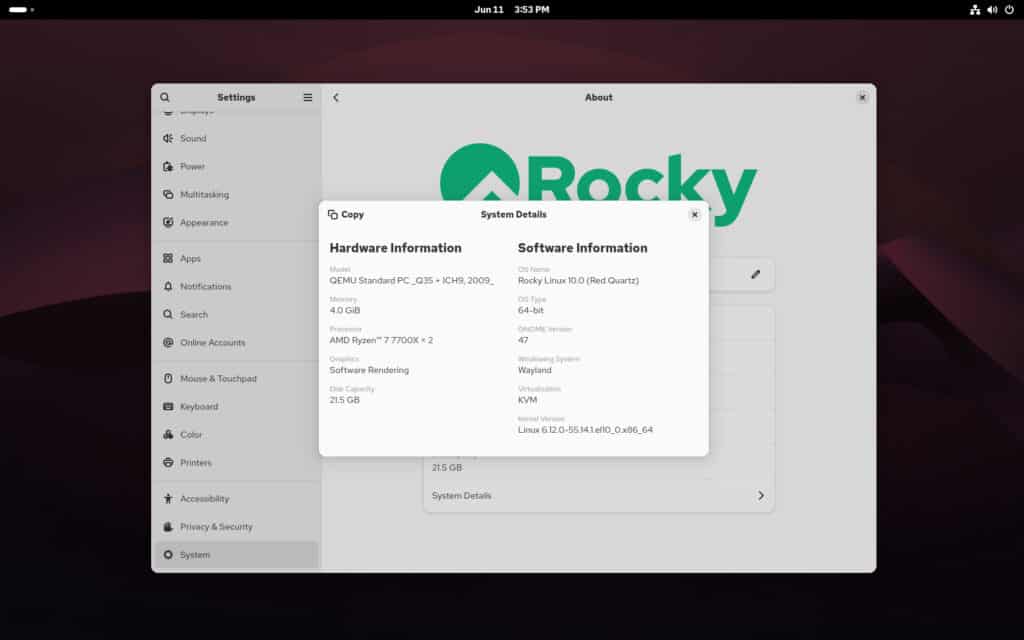After the release of Red Hat Enterprise Linux 10 at the end of May and AlmaLinux 10 shortly after, Rocky Linux, another leading name in the enterprise Linux world, has also rolled out version 10.
A major highlight is the updated hardware support, notably removing x86-64-v2 architectures. Users now need CPUs supporting x86-64-v3, along with continued support for ARM, IBM POWER, IBM z, and the newly introduced RISC-V architecture.
Furthermore, with the release of Rocky 10, the project has retired all 32-bit package support, necessitating a shift toward 64-bit libraries and containerized solutions for legacy 32-bit dependencies.
Installation processes also see enhancements, with default administrative privileges provided to users unless explicitly declined during installation. Graphical remote access has shifted from VNC to the Remote Desktop Protocol, providing a more streamlined and performant remote graphical experience.
Network configurations witness key transitions – the legacy DHCP client has been retired in favor of an integrated subsystem within NetworkManager. At the same time, the ISC DHCP server has been replaced by Kea DHCP, aligning Rocky Linux with contemporary networking standards.
Desktop environments transition firmly into the Wayland era, fully adopting it over the legacy Xorg server, though Xwayland remains available to accommodate applications yet to transition.

The software stack in Rocky Linux 10 features important updates, including PHP 8.3, Python 3.12, PostgreSQL 16.8, MySQL 8.4, MariaDB 10.11, and Nginx 1.26, among many others. Plus, there is a robust selection of performance tools, debuggers, and monitoring solutions such as GDB 14.2, Valgrind 3.23, Grafana 10.2.6, and Performance Co-pilot 6.3.
Moreover, Rocky 10 marks a shift in its release engineering process, temporarily moving from Peridot to Koji to ensure optimal stability and security. The decision underlines the project’s dedication to integrity management, notably with support for kernel-level Integrity Measurement Architecture (IMA).
Existing users should note that upgrades from earlier Rocky Linux versions are officially unsupported, so a clean installation is necessary for those upgrading to version 10.
The distro documentation page provides detailed information, including known issues and extensive release notes. The official announcement is here.
